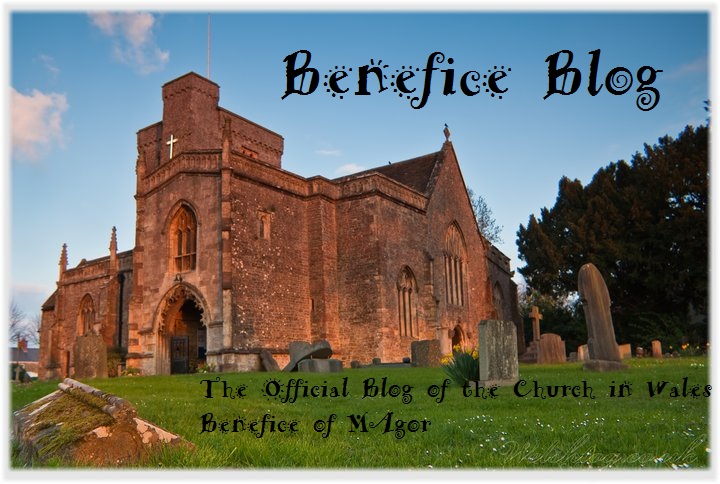Alleluia, Christ is risen! He is risen indeed, Alleluia
All those years ago, the death of Jesus had confused the disciples and made them run away, but the women weren’t intimidated. The four Gospels tell us the women were the first people who went “to see the tomb”, when they got there, Jesus was resurrected – and the angel said
“He has risen from the dead and gone ahead of you to Galilee”
The first time I heard this account of the resurrection I wondered why Jesus decided to go ahead of them, why didn’t he stay at the tomb for a bit? Eventually the women hurried away from the tomb and were greeted by Jesus – on the way to Galilee.
The message here, without a doubt, is that if the resurrection is to mean anything at all, we need to get out of the tomb and get into the world and make a difference!
We mustn’t forget that faith isn’t about just praying for a better world; it’s about leaving the tombs of our own existence and looking for Jesus. The great thing is though that we all know where Jesus will be found…he will be found with the suffering, the lonely, the outcast, the unloved and the oppressed.
In his series of Lent talks, Bishop Dominic made the point that he found it strange that churches are generally surrounded by graves. How, surrounded by death and memorials to those who have gone before us, we are expected to proclaim new life. It seems like a strange place to start, but it’s exactly where Christ started.
From the despair and finality of Good Friday – surrounded by death and bitterness, to the glorious resurrection. Jesus didn’t waste time sitting in the tomb waiting to see who would turn up, he went off to do the work that needed doing. His betrayal, trial, crucifixion, death and his resurrection were a statement, a statement that you can’t bury the truth!
You can’t bury the truth!
So what’s the truth you can’t bury?
On Wednesday, I listened to Archbishop Rowan Williams on Radio 4’s Thought for the Day speaking about the Maundy money that has been given out by Kings and Queens since the Middle Ages.
+Rowan suggested that they didn’t all do it because they were lovely humble people – some were, and some definitely weren’t – but because they all accepted one great truth that needs repeating over and over again, the one big thing that Christianity had brought into the world of human imagination.
And that was – and is – the truth that power constantly needs to be reminded of what it’s for. This is the truth they tried to bury with Christ.
“Power exists, in the Church or the state or anywhere else, so that ordinary people may be treasured and looked after, our children and young people, our elders and those who don’t have the resources to look after themselves. The Bible is crystal clear that this is the standard by which the gospel of Jesus judges the powerful of this world.”
++ Rowan suggested that once a year, leaders of political parties, successful financiers and editors of national newspapers should serve school dinners on council estates, clean bathrooms in residential homes and become Street Pastors in the night in busy cities.
Power exists so that people may be loved. THIS IS THE TRUTH they tried to bury with Jesus. This is the truth that wouldn’t go away. This is the truth that still exists today.
Unfortunately however, those with power sometimes still just nod in the direction of the truth, knowing full well that they have no intention of using it to love or care. Some people also have a misunderstanding about the nature of ‘power’, in most societies it is exercised with the permission of the people. The falsehoods and fabrications that tell us that some people are entitled to power, and some need to be powerless wears a bit thin sometimes, that’s when the trouble starts.
The Gospel says that Power is to be used to create love.
GALILEE
In the account of the resurrection in Matthew, Jesus tells Mary Magdalene and the other Mary to tell the disciples two things; Firstly, he tells them ‘Do not be afraid all will be well’, then he tells them to ‘meet him in Galillee’. They are going back to the beginning where it all began. They have seen the events unfold and the truth is out! They have been shocked and surprised, and now God is saying to them let’s start again, and see how we’ll do it this time. Let’s walk places we’ve walked before…. but this time seeing things though a different light.
He said, “Do not be afraid all will be well”.
What a fantastic day! The sun is shining and we’ve all come to church! But there’s a voice calling us to something a bit different;
Leave this place today, as if you are leaving your own tomb, into the bright sunshine of a new day to start over again. Seek the truth where he may be found in the chaos and turmoil of everyday life, and tell people that they shouldn’t be afraid, because all will be well.
“Do not be afraid all will be well”.
The rest of the day is for celebrating in whatever way you usually celebrate! Have a wonderful day, as we are all resurrected with Christ once again.








